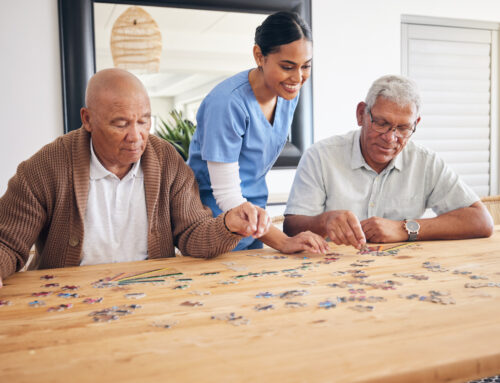Since 1949, Mental Health Awareness Month has been celebrated in May. The goal is to reach as many people as possible and provide foundational knowledge about mental health and what people can do if they are concerned about themselves or a loved one. Over the last two years, feelings of loneliness and isolation have increased due to the pandemic. And there is no doubt that many of us are still struggling with anxiety or stress as we work towards finding the new “normal”. The important thing to remember is that you are not alone. If you are experiencing some of these issues, you might benefit from a “safe space” — somewhere where you can retreat (at your leisure) to hear from experts or other people that have similar challenges. That’s why FirstLantic is devoting this blog to some of the most impactful podcasts that focus on mental wellness. Some are purely informational whereas others add some humor and entertainment to the topic. However, whichever one you choose, it’s a great way to join a conversation that many of us are too afraid to broach with family or friends. So, get out those earbuds and start listening.
Duff the Psych
Known as The Hardcore Self Help Podcast psychologist Robert Duff focuses on various types of anxiety, trauma, as well as depression. He covers each topic in an approachable way that doesn’t feel “preachy.” His philosophy is that when people are already struggling with emotional difficulties, the last thing they need is psychobabble. He aims to take complex psychological issues and break them down into plain language through fielding mental health questions from his audience and interviewing interesting guests.
The Happiness Lab
If you think happiness is dependent on tons of money with big homes and fancy cars, Yale psychology professor Dr. Laurie Santos is here to prove you wrong. The Happiness Lab is about what exactly leads most people to contentment. Based on years of scientific research, each episode tackles common misconceptions about happiness and offers inspiring stories to help you reconsider what it means to you.
Ten Percent Happier
The host of this podcast is Dan Harris who describes himself as a “fidgety, skeptical ABC newsman” who had a panic attack live on Good Morning America. After this wake-up call, he realized that he was struggling with burnout, stress, and negative self-talk and he went on a quest to try to do something about it. He wrote a book with the same name and started his podcast with the mission of figuring out exactly what is happiness and how do you get there?
The Mental Illness Happy Hour
This is another show that brings humor into the discussion of some serious topics such as addiction, negative thinking, and trauma. Hosted by comedian Paul Gilmartin, he interviews other comedians, actors, and doctors on everything from narcissism to how social media might be affecting our well-being.
Terrible, thanks for asking
Hosted by Nora McInerny, this podcast talks openly about uncomfortable topics like sadness, grief, and loneliness. Widowed at a young age, she initially wrote about her husband’s illness, subsequent death, and her feelings of grief on her blog “My Husband’s Tumor”, which had 200,000 followers. McInerny also published a memoir entitled It’s Okay to Laugh (Crying Is Cool Too) and has since written two other books about loss and grief. Her podcast can be raw at times and can quickly go from being funny to sad to uncomfortable. However, real life is also messy and she’s not afraid to tackle important topics that may make you squirm just a bit.
Summary
In summary, one of the biggest issues about anxiety or stress or any of the other topics that are covered by these podcasts is that many of us are afraid to ask for help. We tell ourselves that “maybe we just need to get on with it”, “you’re feeling sorry for yourself”, or “it will go away on its’ own.” If we had cancer, would most of us choose to actively seek treatment or just see what happens? Mental illness is just as real as any other type of illness, and it needs to be treated as such. No one feels stigmatized because they have a broken arm and need a doctor. Let’s start treating mental health the same way and start making our mental well-being our top priority.
To read more about FirstLantic Healthcare, click here.
To read more FirstLantic blogs, click here.
 AVAILABLE 24 HOURS A DAY/7 DAYS A WEEK
AVAILABLE 24 HOURS A DAY/7 DAYS A WEEK Careers
Careers







